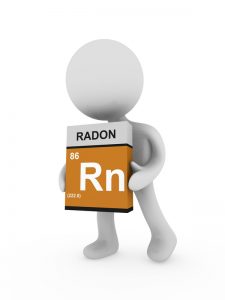 According to the U.S. Surgeon General, radon is the second leading cause of lung cancer. Because one out of every five American homes has radon levels above EPA action level, it’s critical to consider local radon testing to ensure the safety of you and your family.
According to the U.S. Surgeon General, radon is the second leading cause of lung cancer. Because one out of every five American homes has radon levels above EPA action level, it’s critical to consider local radon testing to ensure the safety of you and your family.
With January being National Radon Action Month, there’s no better time to learn about how to get rid of radon in your home. Here a some of the most common questions homeowners have about radon testing and how to navigate radon test results.
What is radon and how does it get into the home?
Radon is a radioactive, carcinogenic gas that’s produced as a result of uranium’s breakdown in the soil. Although radon is naturally occurring, it can become extremely dangerous in the home because of the concentration of the gas and the amount of time the homeowner is exposed to the gas.
Radon gets into the home through the foundation, the walls, and through cracks. Additional ways radon can get into the home is through sump pumps and water pipes.
What can homeowners do to test for radon?
Radon testing is relatively easy. Consider hiring a radon abatement service to check your home for radon using either a short-term or long-term test. The faster you test for radon, the faster you can ensure your family’s safety.
Should the radon testing company find high levels of radon in your home, you don’t need to worry. Radon mitigation and abatement services can help you reduce the levels of radon in your home using different methods.
Some methods for how to get rid of radon include active soil depressurization, sump pump excavation, and sealing the walls and basement area.
What should homebuyers know prior to buying a home with high radon levels?
It’s one thing to own a home with high levels of radon and another to be selling a home with high levels of radon. If you’re selling your home, you’ll need to perform radon mitigation and abatement prior to passing the deed over to the homebuyers.
It’s also essential to provide homebuyers with the documentation recording the home’s radon mitigation. It can be extremely problematic if the home’s radon levels haven’t been driven down to lower levels by the time of the selling.
Radon testing is essential to determine whether your home is safe from this dangerous carcinogen. For more information on radon mitigation and abatement, contact the residential radon testing services of Affordable Radon Colorado today.

Recent Comments